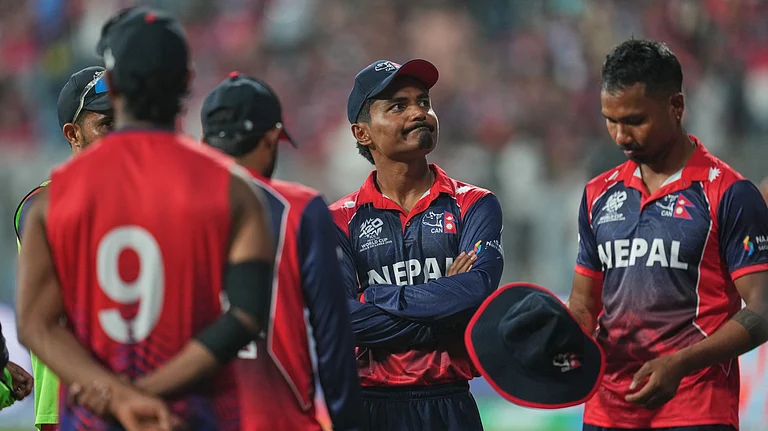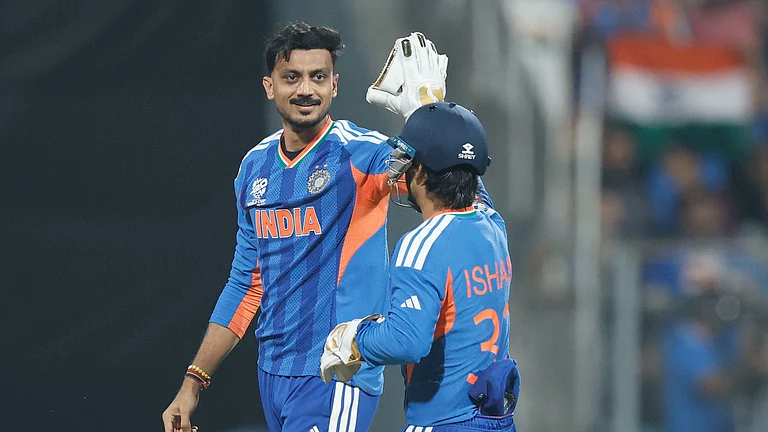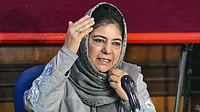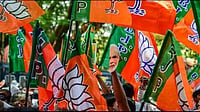The debate around the Indus Water Treaty has a long history in Jammu and Kashmir. Long before the Narendra Modi government last month announced it wants to modify the 62-year-old treaty with Pakistan, it had long been a subject of discussion in J&K.
Earlier, even former J&K CM Omar Abdullah called for the treaty to be scrapped. But the dynamics changed after August 5, 2019, when Article 370 of the Constitution was abrogated and J&K’s special status was scrapped and it was downgraded from a full-fledged state to a Union Territory (UT), and divided into UTs of J&K and Ladakh.
As the regional political parties are more concerned about restoration of J&K’s statehood and other issues, including the J&K UT administration’s massive drive to take over what it calls “state land from people”, the Modi government’s move on Indus Water Treaty escaped mainstream attention.
“For the past four years, there have been no elections in Jammu and Kashmir. There is no elected government. Discussions like the Indus Waters Treaty take place when there is democracy and democratic norms in place,” says a National Conference (NC) leader on the condition of anonymity.
Assembly Elections were last held in J&K in November-December 2014 and the People's Democratic Party (PDP)-Bharatiya Janata Party (BJP) coalition government formed government in March 2015. The BJP walked out of the coalition in June 2018 and the government fell as a result.
The NC leader quoted above says all across Jammu and Kashmir the government’s drive to “take over” land of people has become the most significant issue for all.
“All other discourses have become secondary,” says the NC leader.
Mainstream political parties, particularly National Conference, have been for long saying that the rights over Kashmir rivers were given to Pakistan under the Indus Water Treaty without consulting Jammu and Kashmir and the treaty should be relooked at. The Peoples Democratic Party (PDP) has earlier alleged that the NC was party to the “sell-out”.
In March 2003, the National Conference as an Opposition party moved a resolution in the Legislative Council of the Assembly asking the Union government to review the Indus Water Treaty with a view to safeguarding the interests of the state. Despite of being moved by the Opposition, the council passed the resolution. In 2011, Omar Abdullah as Chief Minister had asked compensation for Jammu and Kashmir from the Union government on account of losses incurred by the state due to the IWT.
In 2010, Jammu and Kashmir government had accorded sanction to engage a consultant to quantify losses suffered by the state due to the IWT between India and Pakistan. The political parties insist that losses due to the IWT are around approximately Rs 50,000 crores annually to Jammu and Kashmir. But that was long ago.
“This time, our major concern is whether elections are held in J&K and, if yes, when,” says a political leader.
The IWT gives India exclusive rights to use the waters of the eastern rivers of Sutlej, Beas, and Ravi and their tributaries before they enter Pakistan while the latter secured rights over the waters of the western rivers of Chenab, Jhelum, and Indus.
The major push for maximum exploitation of the waters of the three western rivers governed by the IWT came after the abrogation of Article 370 when the government decided to expedite the work on the 1000MW Pakal Dul, 624MW Kiru, 540 MW Kwar power projects in the Chenab Valley. The government is also planning to come up with Dul Hasti 550 MW Phase II hydropower project.


























